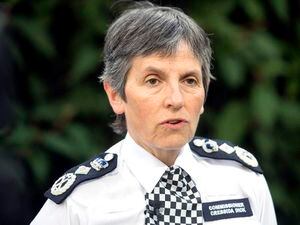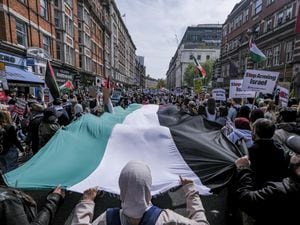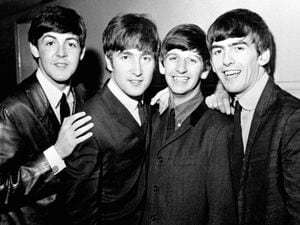‘Stretched’ police should focus on violent crime, says Met chief Cressida Dick
The Commissioner backed the views expressed by National Police Chiefs’ Council chairwoman Sara Thornton.

Britain’s top police officer has backed a drive to focus on violent offenders rather than recording incidents of misogyny that are not crimes.
Metropolitan Police Commissioner Cressida Dick said “stretched” forces must prioritise violent crimes, including drug gangs fighting turf wars on the streets of towns and cities across the country.
She indicated that other offences, including online fraud, were lower priorities for her officers.
She backed National Police Chiefs’ Council chairwoman Sara Thornton, who warned that forces could not take on all “desirable and deserving” issues, such as logging misogyny reports even when no offence has been committed.
There have been calls for misogyny to be treated as a hate crime and the Government has commissioned a review to examine whether laws should be extended to cover offences motivated by hostility towards a victim’s sex or age.
Ms Dick said: “My officers are very busy, they are very stretched. We have young people in London subject to stabbings and other serious violence, getting involved in drug gangs and things, lots of priorities.
“We can’t go on increasing the scale of the mission through enforcing new laws unless we are given more resources or the public are prepared for us to just do some things not as well.”

She gave the example of a group of 16-year-old girls being subjected to wolf-whistles and calls while walking past a building site.
Calling for a “common sense” approach, she said: “I would not expect my officers to record that.
“However, if one of the girls complained to a neighbourhood officer, I would expect the neighbourhood officer to go across to the site manager and say ‘You know, those girls aren’t enjoying this’.”
Explaining her priorities, she said: “We undoubtedly have a huge impact of drug-related crime.
“We are not in a good position here. We have supply up, clear signs the production of cocaine is up, the purity is up, the price has come down, addictions are up, deaths are up.
“This is not a good place to be and it is being played out in violence between drugs gangs on the streets of our cities and towns across the country, not just in the big cities.”
She added that middle-class users who take cocaine form a “considerable” part of the market and they “need to think about the misery at every single stage of the chain that gets them their drugs”.
The police have to concentrate on serious offenders, she said, such as those responsible for making child abuse images.
“As professionals, we have to work out what is the best way to deal with the most serious things. Another area that has grown hugely is viewing indecent images of children.
“People find that utterly appalling, it is awful, but I’m afraid that we probably all know somebody who does that.
“We must do more about the people who are making the images, who are making that happen, who are live streaming and that kind of thing. We cannot attack all problems from all angles.”





